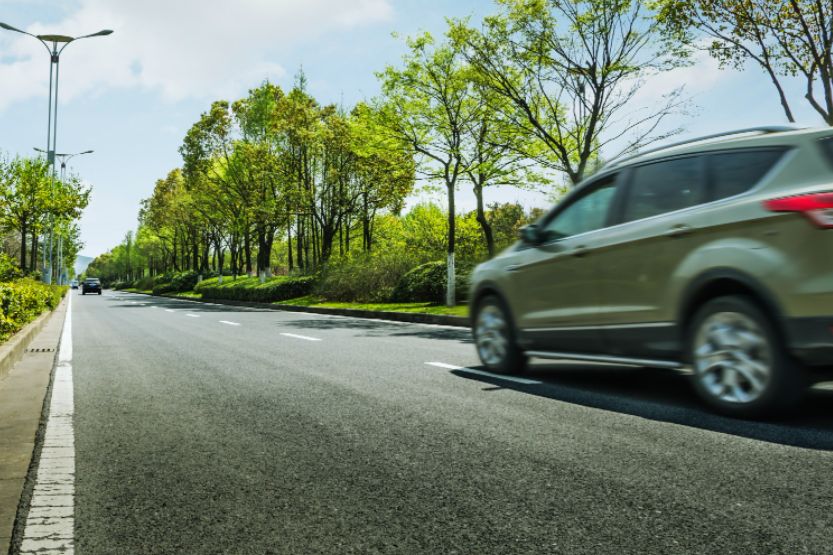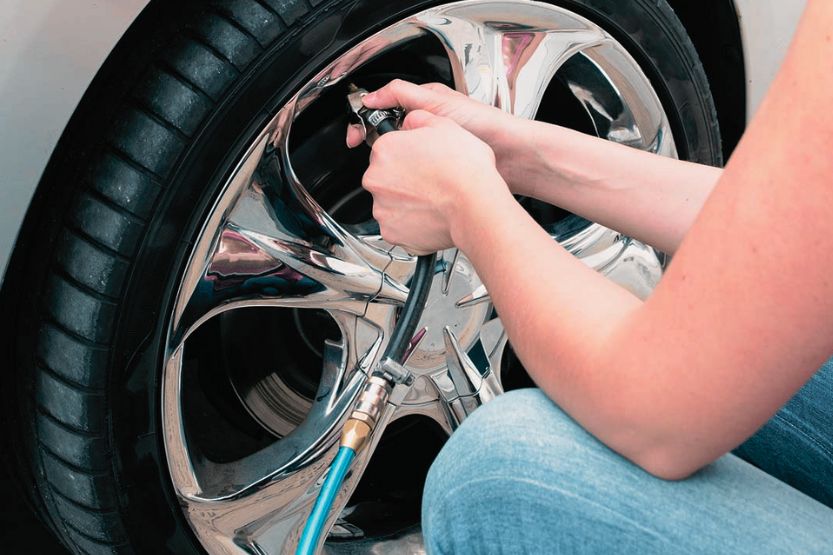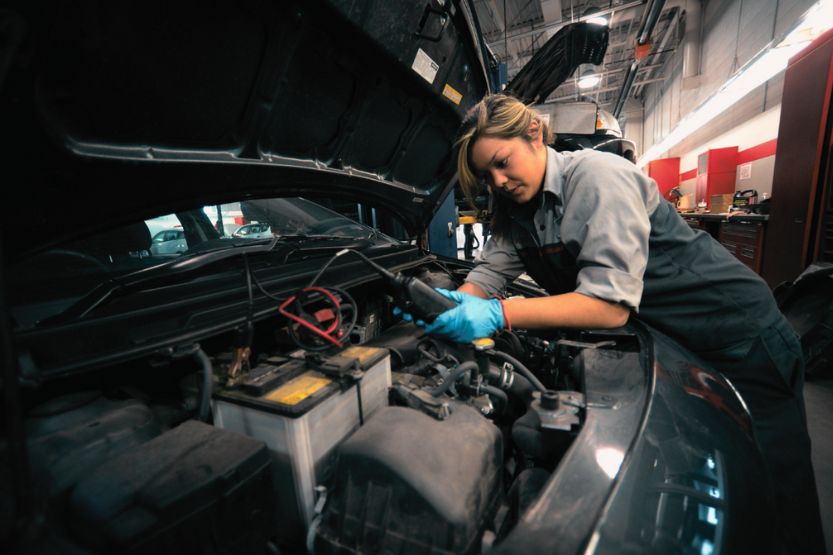While you are enjoying your drive on the boulevard and accelerating at 60 miles per hour, your car suddenly shakes intensely, making you stop on the roadside. What’s the matter? Is there a problem with why my car shakes when I hit 60 mph?
When you are driving, and your car hits 60 mph, and it shakes violently, the most likely culprit is your wheels. Your car’s inordinate actions come from the vibrations that originate from the steering wheel going to the front seats and running across the floor of your vehicle.
Aside from wheel issues, there are other possible causes why your car can vibrate when it attains a speed of 60 mph and over. These other causes include tires with uneven wear, parted tire treads, loose lug nuts, damaged wheels, and others.
Read on to learn more about why your car can vibrate when running at 60 mph and over and how to prevent vibrations when your vehicle hits higher speeds.
My Car Shakes When I Hit 60 MPH

If you are driving and your car shakes when it attains 60 mph or more, most likely, the cause is unbalanced wheels. Your car’s shaking comes from the steering wheel that runs across the front seats and through your car’s floor.
There are other reasons why your car can vibrate apart from unbalanced wheels. Loose lug nuts, damaged wheels, uneven wear of tires, wheels that are out of alignment, and parted tire treads are among the reasons.
If the vibrations get more violent as your speed increases, it could be caused by a bent axle. This situation is more difficult because a broken axle will prevent you from driving your car, even in your garage.
What Are the Possible Causes of a Shaking Vehicle When You Hit 60 MPH?
Just enumerating the causes why your vibrates when it attains 60 mph speeds or more is not enough. These causes need elaboration to understand them more and make the necessary interventions so you don’t experience them while driving.
While speeding at 60 mph, a vibrating car is unsafe and dangerous to you, your passengers, and other drivers and pedestrians. So, here are more details that will help you understand the causes even more:
1. Unbalanced Wheels
Each time your car reaches 60 mph or more, and it vibrates, the most likely cause is your wheels are out of balance. The shaking of your vehicle comes from the vibrations originating from your steering wheel and running across the car floor.
Unfortunately, as you drive your car, the position of the added wheel weights can move. They may even fall off. So, you are again left with unbalanced tires. The problem is that you think the weights are still there, but they are not. The result is unbalanced tires.
2. Misaligned Wheels
Misaligned wheels are a common reason why your car vibrates at higher speeds. You can’t avoid having your wheels misaligned if you drive your vehicle often.
One reason your wheels can go out of alignment is when one has bumped or hit a curb. This can cause the alteration of the positioning of your wheels, causing them not to be correctly aligned.
3. Unbalanced Tires
The weight carried by the tires of your car is not distributed evenly. In other words, your tires do not have the same weights. Tire repair shops compensate for this by putting additional weight on a newly installed tire.
The reason for this is: unbalanced tires can cause your car to vibrate at higher speeds of 60 mph and over.
If your car has this problem and you don’t fix it as soon as possible, your steering wheel and suspension components will wear out faster. It can also cause poor gas mileage and lead to a tire blowout.
4. Uneven Tire Wear
If there is unusual wear or strange tire wear patterns, such as flat spots in just one of your tires, it could also cause the vibration of your car when it attains a speed of 60 mph or more. Uneven tire wear alters the perfect circle that your tires need to rotate evenly.
If the wear of your tires is not even, they will not rotate smoothly. When they rotate at 60 mph and over, they will vibrate no matter how smooth the pavement is.
Again, why does your car shake when it hits 60 mph? A car shaking upon hitting 50-70 mph might be due to out-of-balance wheels. The vibration starts from the steering wheel to the floor.
Other Reasons Why Your Car Shakes When At 60 MPH

Apart from the four main reasons why your car will vibrate when it crosses the 60 mph threshold, there are other possible causes for this problem. Here are some of the most notable ones in detail.
1. Underinflated Tires
There is a reason why you should check the air pressure of your tires before taking your car out of the garage. It will ensure that your ride will be smooth and not shaky.
However, if you don’t do this and correct your tire pressure if you find that they are underinflated, you will experience a shaky and bumpy ride.
2. Worn or Broken Wheel Bearings
Your car’s wheel bearings are there to secure and protect the suspension system. This enables your wheels to turn smoothly. If worn out and damaged, it will also cause the steering wheel and your vehicle’s vibration.
You can’t avoid having bad or worn-out wheel bearings if you are driving your car often, especially in rough road conditions. Speed bumps, potholes, and curbs are the things that can put stress on your vehicle’s wheel bearings.
You can’t avoid these road imperfections, especially if you enjoy night driving. Modifying your car’s suspension system can also lead to your vehicle vibrating when it attains higher speeds from 60 mph and over.
3. Faulty Suspension and Steering Components
The components of your vehicle’s steering and suspension systems must be tightly fitted together to ensure they will have no free play. However, as you continue driving your car, you can’t prevent them from being loosely tightened or worn out.
When two of these conditions are present in your car, it will shake at 60 mph or higher speeds.
4. Bad Axle Joints
If your vehicle’s axle is broken or badly damaged, it can also be why it vibrates at 60 mph or higher. The vibrations will be more violent when you up your speed to more than 60 mph. Just imagine the damages this will do to the other parts of your vehicle.
5. Bad Ball Joints
Car ball joints also ensure the smoothness of your ride. So, if they are already failing because of old age or misuse, instead of having a smooth ride, you will get a bumpy and shaky ride as you attain speeds of 60 mph or more.
This will be very noticeable after going through curves and as you start to straighten out your car.
6. Broken Brake Caliper
If your car vibrates when you hit about 50 to 60 mph, and the shakes are followed by a strange burning smell when you slow down and stop your vehicle, the culprit can also be a worn-out caliper pen.
7. Bad Tie Rod Ends
You can also say that damaged tie rod ends cause your car to vibrate at around 60 mph, especially if the shaking fades away when you straighten your wheels.
If the shaking manifests itself again when turning your wheels in a curve, the bad tie rod ends cause vibrations.
8. Worn Out Brake Rotors
The minute you step on the brakes and your car shakes, it could be the fault of worn-out brake rotors. One or more are already warped or worn out because of old age.
9. Engine and Transmission Issues
You also can’t discount the possibility of engine and transmission problems if you are experiencing shakiness when your car hits 60 mph or more. The engine plays a vital role in the smooth operation of your vehicle.
Make one of its components inefficient or inoperable, and you will experience problems. For instance, a damaged engine or loose transmission mount can also cause your vehicle to vibrate at high speeds.
How Do You Fix a Shaking Car at High Speeds?

1. Have a Mechanic Check the Vehicle
While the shaking does not mean impending disaster, you still need to have it checked by a qualified mechanic. Every time you drive your car, you should ensure that it will provide a safe and comfortable ride. If not, it’s best to refrain from driving it until its issues get fixed.
2. Ask a Certified Tire Tech to Diagnose the Cause of Unbalanced Wheels
If unbalanced wheels cause the shaking, you need to ask a certified tire tech to diagnose the cause of the imbalance and recommend and apply the fix. Only a professional tire tech can do this job, as it requires some degree of specialty.
The same thing goes if the vibration issue is due to misaligned wheels. You need a car tire repair shop specializing in wheel alignment. There are tools and equipment that tire techs in such tire repair shops use to perform their task correctly and efficiently.
3. Rotate the Tires
If your car vibration problems are due to out-of-balance tires, then this is something you can do yourself if you have decent handyman skills. You can try rotating your tires and see if that makes your vibration issues go away.
However, if after you have rotated your tires and the problems are still there, you need to go to a tire shop to have the issue adequately fixed. The tire techs will add weights to your unbalanced tires and use their wheel-balancing equipment and tools to balance all your tires.
You need to take your car to a legitimate car repair shop for other vibrations that are more technically oriented, such as bad wheel bearings, damaged brake rotors, engine issues, and such like.
Mechanics have all the skills and tools to properly diagnose your vibration problems and apply the most cost-effective fix.
In Closing
If your car vibrates when accelerating as your speed reaches 60 mph, it could be caused by your wheels. Most likely, the shaking of your vehicle is from the vibrations from the steering system running across the front seats onto the floor of your car.
There are other reasons your car can vibrate when your speed reaches 60 mph and over, including:
- Unbalanced tires with uneven or separated treads,
- Damaged wheels, and
- Loose lug nuts.




![What Causes a Catalytic Converter to Go Bad? [6 Main Causes] what causes a catalytic converter to go bad](https://roadsumo.com/wp-content/uploads/2022/01/what-causes-a-catalytic-converter-to-go-bad-150x150.jpg)




